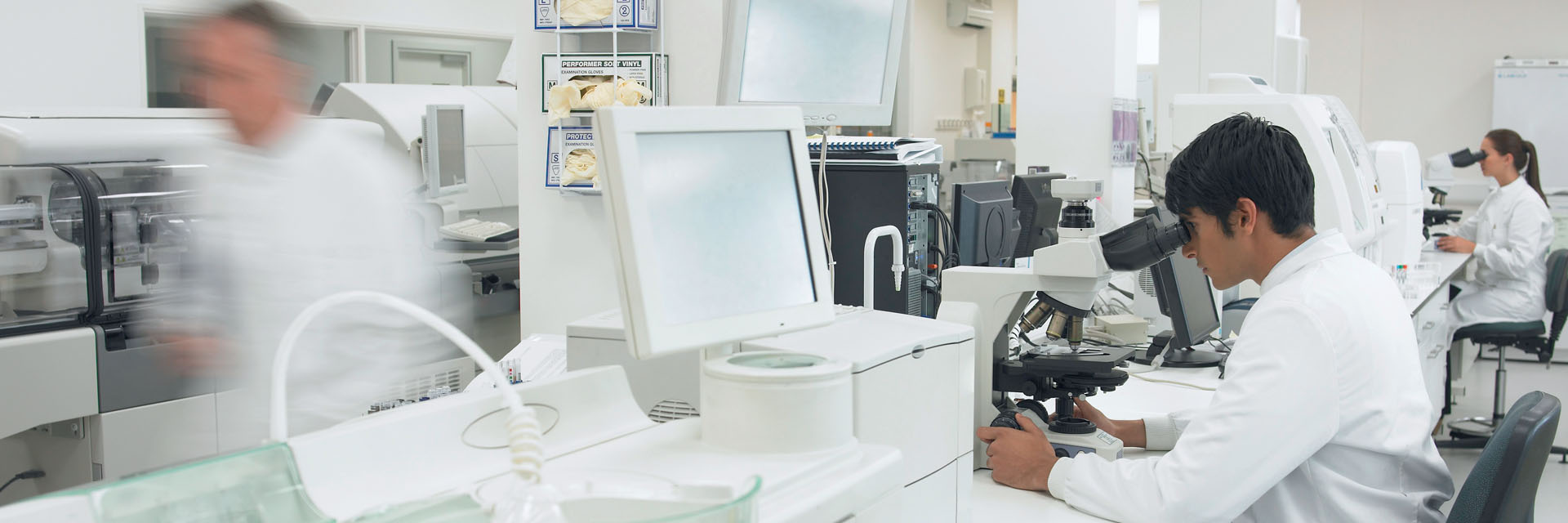Enhancing research capabilities in developing countries is one of our foundation’s main objectives. We do this by creating laboratories of excellence – the Rodolphe Mérieux Laboratories – which we transfer to local partners, by training local research teams and establishing collaborative research programs.
Encouraging the autonomy of research institutions
The Foundation is refocusing its commitment on boosting local facilities, autonomy and new initiatives taken by Rodolphe Mérieux Laboratories and other members of the GABRIEL network.
Its technical and scientific expertise has therefore been realigned to focus on collaborative work: close ties have been established with three academic teams working on North/South programs, who have international reputations in their respective fields . These collaborations aim to capitalize on synergies in terms of expertise (the Foundation’s local expertise and the academic partners’ technical, scientific and medical expertise) in order to optimize the relevance of research programs and their impact on the health of populations.
National academic collaborations for local reinforcement
In 2020, the Mérieux Foundation consolidated the research skills it needs to reinforce the capacity of teams in the Global South, by establishing strategic collaborations with academic researchers in three main areas:
- Antimicrobial resistance with a team led by Jean-Yves Madec at Anses (French national agency for food, the environment and work), a reference laboratory for the FAO (UN Food and Agriculture Organization) and the OIE (World Organization for Animal Health);
- Tuberculosis with a team led by Oana Dumitrescu and Florence Ader from the Hospices Civils de Lyon, with expertise in basic, translational and clinical research recognized by the international scientific community;
- Acute respiratory infections with a team led by Manuel Rosa-Calatrava and Bruno Lina from the VirPath laboratory (Université Claude Bernard, Lyon), a team with a reputation in pathophysiological and clinical research into respiratory infections and the analysis of new antivirals research, which is linked to the main national center for respiratory viruses.
Priority for wide-reaching, long-term initiatives
Following a period of significant growth over the past ten years, and its contribution to the development of a vast network of scientific expertise, particularly through the creation of the Rodolphe Mérieux Laboratories and the GABRIEL network, the Mérieux Foundation realigned its scientific strategy in 2020 to focus on the continuity of its actions to improve access to diagnosis and those directly benefiting developing countries.
Priority is therefore given to pivotal research initiatives helping to:
- Promote access to diagnostics and diagnostic innovation;
- Strengthen research capacity in direct association with the most vulnerable communities;
- Support community intervention projects with an impact on the prevention and treatment of infectious pathologies, particularly in children, in the most disadvantaged countries and communities.
Three priority research areas
We have collaborative research projects in three main public health areas that require urgent attention in developing countries:
- Acute Respiratory infections
- Tuberculosis
- Antimicrobial resistance
GABRIEL, global research unit network
The Foundation’s scientific and medical activities rely heavily on the international GABRIEL network (Global Approach to Biology Research, Infectious diseases and Epidemics in Low-income countries). The network is made up of laboratories of excellence in developing countries and helps to strengthen research capacity through the development of collaborative studies, technology transfer, the organization of training courses and the sharing of experience. It is also directly involved in improving surveillance and research capacity for infectious diseases with a major impact on public health.
Scientific Advisory Board
The Scientific Advisory Board debates and approves the scientific priorities of the Mérieux Foundation. It is an advisory body made up of 12 renowned external scientists who conduct research and specialize in the Foundation’s priority research areas and represent countries from both the North and South. The President of the Foundation nominates members of the Scientific Advisory Board for a three-year term, and one-third of its members are renewed every three years.

